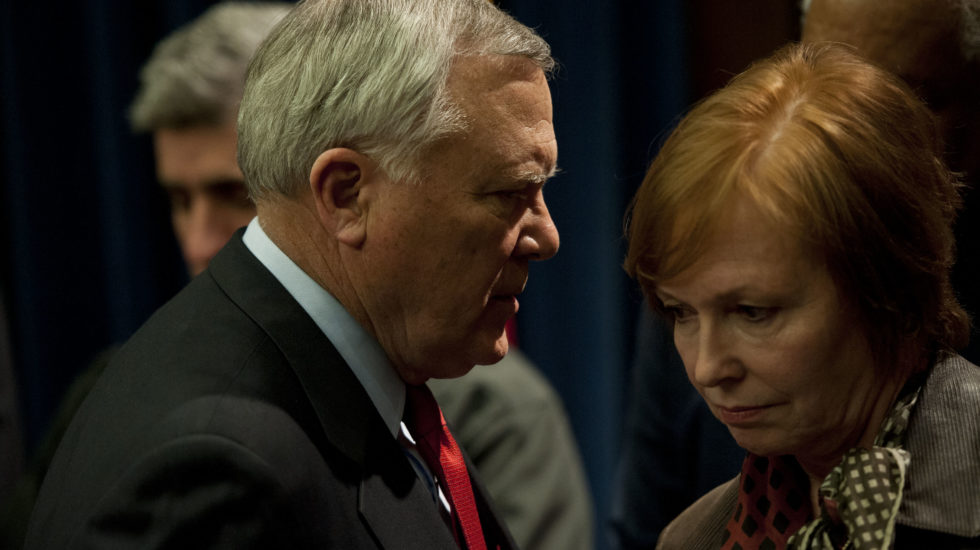In a fascinating moment of unintended candor, the nation’s new Health and Human Services Secretary announced that the head of the Centers of Disease Control would resign due to what he termed “complex financial interests.” And what exactly were those interests? Dr. Brenda Fitzgerald, the former top health commissioner of Georgia, bought and traded tobacco stocks after taking the helm at the CDC, a post that ostensibly put her in charge of the nation’s anti-smoking efforts. Politico first reported Fitzgerald’s stock trades on Tuesday.
“You don’t buy tobacco stocks when you are the head of the CDC. It’s ridiculous; it gives a terrible appearance,” Richard Painter, a Republican who served as the White House’s chief ethics lawyer during the second Bush administration, told Politico. “It stinks to high heaven,” he added.
Since the Surgeon General of the United States first detailed the ways smoking could be harmful to one’s health in 1964, the CDC and other government agencies have as a matter of policy tried to curtail smoking, often to the displeasure of Big Tobacco.
While the tobacco stock purchases–which occurred only one month after Fitzgerald took office–were eye-poppingly problematic, they were by no means her only “complex financial interest.” Fitzgerald had also lately invested in other companies whose businesses would likely fall under her purview, Politico reports. And Congress is looking at whether she divested previously-held investments in a prompt and forthright manner.
This last point gets at a larger issue, which is that officials throughout the Trump administration have routinely skirted conflict of interest laws. Education Secretary Betsy DeVos ruled that student-loan companies could run up fees for borrowers, in a move that would likely benefit one of her top advisors; he abruptly resigned as the new rule was being drafted. Commerce Secretary Wilbur Ross faced questions after the Paradise Papers report appeared to identify previously undisclosed offshore holdings. And China rewarded Ivanka Trump’s company with trademarks on the very day the White House advisor and her husband and colleague Jared Kushner dined with Chinese President Xi Jinping.
Finally, how could we forget about the president himself, who charges taxpayers for the many restorative trips he takes to Mar-a-Lago and his other resort and golf properties? There’s also the Trump International Hotel in Washington, D.C. Blocks from the White House, the hotel has low occupancy yet charges high room rates in head-scratching defiance of the law of supply and demand. The hotel has, over the past year, become the go-to venue for clients ranging from foreign governments to political action committees to Republican members of Congress.
That all of these people who have, shall we say, “complex financial interests” tied to the government should choose the president’s hotel (leased federal property, mind you) for their functions is hardly a coincidence. It’s simply one more stark illustration of the fact that in the current administration, officials do not feel honor-bound to play by established ethical norms. The fact that the head of the CDC resigned over her tobacco stock is good news in that it reasserts the idea of proper conduct. But it’s also bad news in that it shows just how brazen the culture of Washington has, in only a year, become.



